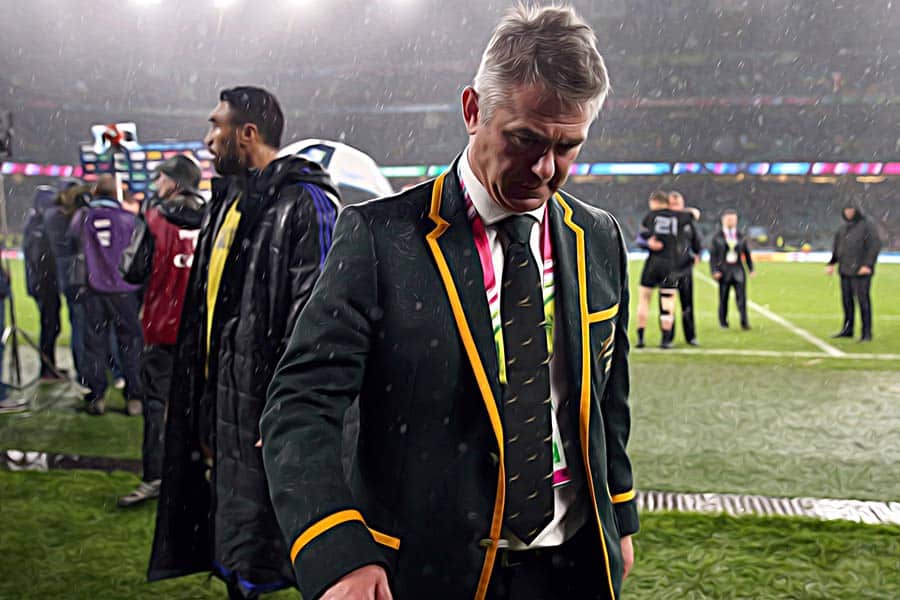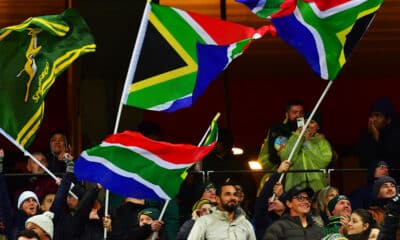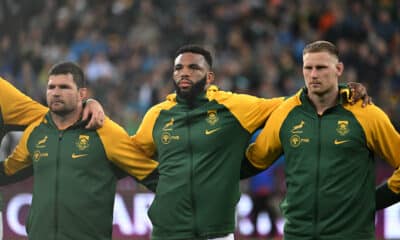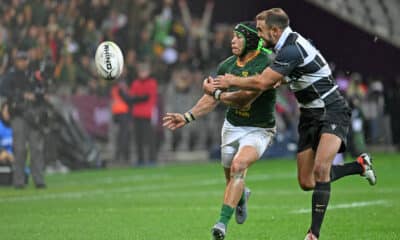
18 December 2019, by: Quintin van Jaarsveld
Springbok Decade Series: 2012
The past decade saw the Springboks rise from record lows to ultimate triumph, writes Quintin van Jaarsveld.
The Springboks’ journey over the past 10 years, rising from the ashes to World Cup glory in 2019, is akin to climbing Everest. The very reputation of Springbok rugby hung in the balance after the men in Green and Gold plummeted to unprecedented lows. Record losses equalled red alert and avalanche after avalanche threatened to bury the Boks for good.
With true South African grit, however, the men in Green and Gold persevered. Problems persisted, but every time they got knocked down, they picked themselves up and dusted themselves off. Instead of waning, they grew stronger and eventually turned the corner. Emerging from the shadows, there was hope once more, the summit in sight, albeit from afar.
Hope inspired heroics, and with Rassie Erasmus and Siya Kolisi leading the way, the Springboks scaled the peak in remarkable fashion. Overcoming the odds, the class of 2019 clinched the coveted Webb Ellis Cup, planting their flag atop rugby’s Everest and breathing the rarefied air reserved for world champions.
On the doorstep of a new dawn, we take a trip down memory lane in a 10-part series chronicling the decade that was for Springbok rugby.
GET THE ADVANTAGE WITH OUR RUGBY BETTING OFFERS
Extensive pre-match and live in-play markets on every game.
Our legendary BET Boosts to give you extra value on every game!
Exclusive to BET.machibet777-affiliate.com customers.
Springbok rugby entered a new dawn in 2012. South Africa’s second reign as world champions had ended in a whimper courtesy of the 11-9 loss to Australia in their quarter-final showdown in Wellington. New Zealand referee Bryce Lawrence had played a significant role in the Boks’ heartache and was widely criticised for his performance.
When tempers finally cooled down, reality set in, that being that the Boks had to start again from scratch. Peter de Villiers was sacked as coach and a host of key players – central figures in the “golden generation” who had captured the World Cup, Tri-Nations and secured a series win over the British and Irish Lions – bowed out after the failed title defence.
Chief among them were John Smit and Victor Matfield, two of the all-time greats and the most-capped players in Springbok history. The Boks needed not only a new coach but a new captain and vice-captain as well. Invaluable experience had been drained out of the squad that did duty in the World Cup, which included 18 members of the triumphant 2007 side, and as legendary commentator Hugh Bladen once said, “You can buy fish and chips, but you can’t buy experience.”
Enter Heyneke Meyer, the man who had built a dynasty at the Bulls. Meyer, who became the first South African coach to win a Super Rugby title in 2007 and before that, guided them to Currie Cup titles in 2002, 2003, 2004 and 2006 (shared), was entrusted with the Bok coaching job.
He had been part of the Springbok set-up before, having served as an assistant coach under Nick Mallett (1999 and 2001) as well as Harry Viljoen (2001), and his appointment as head coach was widely welcomed. The polar opposite of the colourful and outspoken De Villiers, Meyer was a reserved and respectful individual and was also a superior tactician.
Meyer selected centre Jean de Villiers as captain, who at 31 and with 72 Test to his name, became the most experienced player in history to be appointed skipper, and named hooker Bismarck du Plessis vice-captain. The first challenge came in the form of England, who like the Boks had crashed out of the World Cup at the quarter-final stage with a 19-12 defeat to France.
The first Test, played in Durban, saw four players make their debuts – Eben Etzebeth, Juandré Kruger and Marcell Coetzee, who featured in the starting XV, and Coenie Oosthuizen, who came off the bench. The Meyer era kicked off on a positive note as the new-look side sealed a 22-17 win, and they clinched the series with a 36-27 victory in Johannesburg the next week before drawing the final fixture 14-all in Port Elizabeth.
The honeymoon period ended when the inaugural Rugby Championship came around. The campaign started well enough, with the men in Green and Gold prevailing 27-6 over the Pumas in Cape Town, before adversity hit in Argentina. Trailing 13-3 at half-time, the Springboks escaped a historic loss thanks in large part to a charge-down try by Frans Steyn, which helped salvage a 16-all draw.
Meyer’s men suffered their first loss in the following fixture, succumbing 26-19 to the Wallabies in Perth – which marked the debut of Duane Vermeulen in the No.8 jersey – and went down 21-11 to the All Blacks in Dunedin the next week. They bounced back in style in their homecoming game, walloping the Wallabies 31-8 at Loftus with Bryan Habana scoring a hat-trick and Elton Jantjies making his debut off the bench, but then crashed to a 32-16 defeat to runaway champions New Zealand at Ellis Park to finish third.
With nine Tests under their belt, the developing team closed out the season with an unbeaten end-of-year tour, pipping Ireland 16-12, seeing off Scotland 21-10 and edging England 16-15. With seven wins, two draws and three losses, Meyer got a 58% pass mark for his first year in charge and the Boks finished the year ranked second behind the All Blacks.
South Africa 22-17 England
South Africa 36-27 England
South Africa 14-14 England
South Africa 27-6 Argentina
South Africa 16-16 Argentina
South Africa 19-26 Australia
South Africa 11-21 New Zealand
South Africa 31-8 Australia
South Africa 16-32 New Zealand
South Africa 16-12 Ireland
South Africa 21-10 Scotland
South Africa 16-15 England
JOIN BET.machibet777-affiliate.com NOW AND GET 100% DEPOSIT MATCH UP TO R1000
Open your BET.machibet777-affiliate.com account here
Deposit using your preferred method
Your bonus gets added immediately!
MORE RUGBY
















